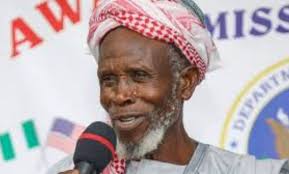
SA has been in the naughty corner of the world’s money laundering and terrorist funding watchdog for going on three years.
In a rare bit of good news for our struggling economy, all the signals are that at its plenary next week, the Financial Action Task Force (FATF) will remove us from its greylisting.
That is unless US President Donald Trump throws a spanner in the works. Or Israel.
Greylisting flags that a country’s legislative architecture has failed at containing corruption, money laundering and cross-border financial flows to criminals, terrorist organisations and rogue states.
The lifting of the FATF sanction is eagerly anticipated by the ANC-led government of national unity (GNU) and the financial sector.
Political will needed
Treasury officials, politicians and analysts have read the smoke signals.
In June, FATF conducted an in-country visit and found that, on paper, South Africa had substantially completed all 22 action items flagged by FATF.
It should be straightforward, with the champagne already on ice, were it not for two snags.
First, ticking the boxes on technical compliance isn’t the same as proving effectiveness. Second, the FATF plenary decides by consensus, not by a majority of its 38 members.
If any member – think the US or Israel – baulks at the recommendation, SA remains in the cold.
Technical compliance, on the face of it, looks impressive. However, every South African knows there is little political will on the part of President Cyril Ramaphosa and his “reformists” to address criminal corruption, or the alleged financial ties the ANC as a party and some Islamist-aligned organisations have with terrorist-designated groups like Hamas.
Even if the political will were forthcoming, the law enforcement and justice system is in complete disrepair.
Last week, acting Minister of Police Firoz Cachalia admitted there was a “real possibility” of SA becoming the next Colombia if the government failed to roll back the tide of organised crime and reform anticorruption institutions into more effective entities.
But it’s not only the fragility of technical compliance. The bigger problem is Pretoria’s hostility to the US and Israel, which helped ensure our pointed exclusion from this week’s Gaza ceasefire peace signing in Egypt.
SA wasn’t invited, yet several outspoken critics of Israel’s conduct – including Indonesia, Pakistan and Spain – were.
Too many own goals
The SA government has racked up so many own goals that the pattern is hard to ignore.
There’s been an ambassador to Washington declared persona non grata over ties to Hamas and open hostility to Trump; a special envoy to Washington who has similarly shared his antipathy towards Trump; and the chief of the SA National Defence Force, who faced no sanction after declaring military and diplomatic support for Iran against Israel and the US.
Small wonder that US conservatives are determined to exert pressure. Last month, the influential Washington outlet, The Hill, ran an article by analysts at the conservative US thinktank, Foundation for Defence of Democracies, arguing strongly against removing SA from the greylist.
Given weak institutions, they warned, to do so now “would be a gift to kleptocrats, terror financiers and organised criminals alike”.
Pretoria also turns a blind eye to terrorist financing. The ANC maintains close ties to Hamas, while groups linked to terrorist organisations operate freely and fundraise with impunity.
Against such headwinds – a broken law enforcement system and a provocatively anti-US and anti-Israel foreign policy – a delisting next week will be an enormous triumph for Pretoria.
If it comes, it will owe as much to bureaucratic box-ticking as to real-world enforcement.
And if Washington or Jerusalem choose not to block it – FATF’s consensus rules mean either can – that restraint will undoubtedly embolden the Islamist faction in the ANC that determines foreign policy.
NOW READ: South Africa well on its way to get off FATF grey list



